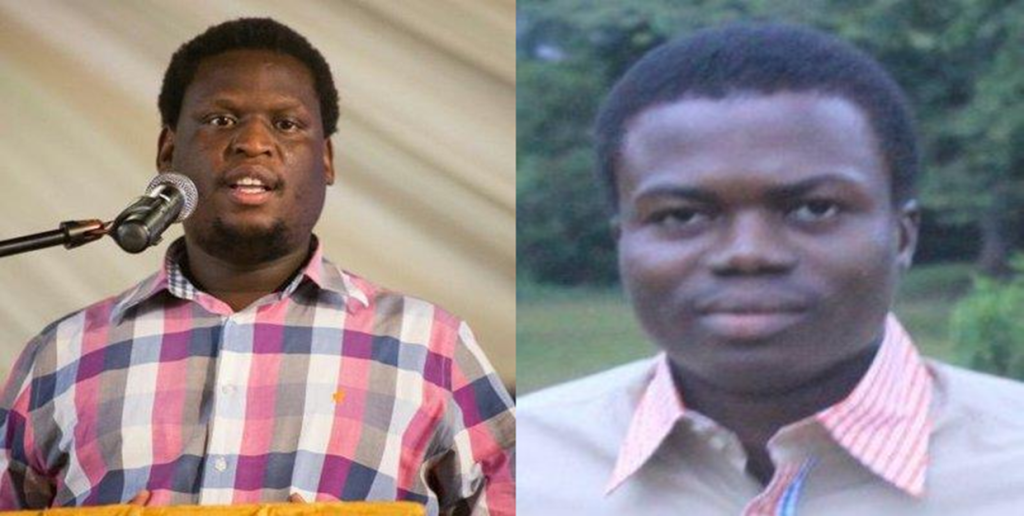The death of Ifeanyi Menkiti (born on the 24th of August 1940) on the 17th of June 2019 came as a shock to the African philosophical community. Before his death, Menkiti was considered an “elder” in African philosophy, having served as a second-generation African philosopher with peers such as Kwasi Wiredu, Kwame Gyekye, John Mbiti, Paulin Hountondji, Peter Bodunrin, to name a few. With an established career spanning at least 40 years, Menkiti was best known for his seminal articles on African metaphysical understanding as well as those detailing his views about African conceptions of personhood. Those articles still, and will continue to raise debates, and influence African philosophers.
So, it came as no surprise that recognizing the importance of his philosophical legacy, the Department of Philosophy, University of Johannesburg, decided to host a tribute event for the late giant of African philosophy, Professor Ifeanyi Menkiti. Organized by one of her Doctoral candidates, Aribiah Attoe, who is also a member of the Conversational School of Philosophy,
this event (which was held on the 18th of October 2019) brought together experts in African philosophy as well as postgraduate students to discuss the life and philosophy of Ifeanyi Menkiti.
This event also brought together some heavyweights in African philosophy. First, was the keynote speaker, Prof Thaddeus Metz, who is a Distinguished Professor at the University of Johannesburg in South Africa, who is well-known for his work in developing an African moral theory. Also invited was Prof Edwin Etieyibo, the Head of the Philosophy Department at the University of the Witwatersrand and a friend of Prof Menkiti. Dr. Oritsegbugbemi Oyowe, a lecturer at the University of the Western Cape, whose work on personhood converses with the blueprint laid down by philosophers like Prof Menkiti, was also present as a panelist. Last, but by no means least, of the invited panelists was Dr. Motsamai Molefe, a senior researcher at the University of Fort Hare, whose work on African conceptions of personhood directly ties with Menkiti’s view on the subject. Not left out, the event also featured respondents – Ms. Sarah Setlaelo and Ms. Lindo Gama – who are Postgraduate students from the University of Johannesburg and the University of Pretoria respectively.
Thaddeus Metz (Photo credits: uj.ac.za)
The event began around 10:10 am, with a short welcome speech from the Head of the Philosophy Department at the University of Johannesburg, Prof. Veli Mitova, which was followed by a keynote talk by Prof. Thaddeus Metz. Beautifully rendered, Prof Metz traced the history and trajectories of Prof Menkiti’s Philosophical legacies, before delving into the various
philosophical controversies, debates and responses that Prof Menkiti’s philosophy garnered. This was followed by a brief discussion between Prof Metz and some attendees, featuring various questions and responses.
Edwin Etieyibo (Photo credits: edwinetieyibo.com)
Taking an important turn away from philosophical discussions, Prof Edwin Etieyibo delivered a passionate speech about the person Ifeanyi Menkiti, portraying him as a man who imbibed his own philosophy of engaging positively with the community in which he belonged. He began
with a personal story of sacrifice, describing how the late Professor Menkiti selflessly decided to be present and support him during his (Prof Etieyibo’s) keynote address in an event in Boston, rather than celebrate his birthday with his family in New York (as was the family tradition). Prof Etieyibo also described Menkiti as a community person. To show that this was a well-deserved moniker, Prof Etieyibo describes two events. First, was Prof Menkiti’s rescue of the Grolier Poetry Book shop. The Grolier poetry bookshop stood as a historical melting point for poets and poetry from around the world and it served one of the most important cultural sites in America.
At the time, this important institution was about to go out of existence due to financial problems until Prof Menkiti bought it, not for profit (as he was losing money while running the bookshop) but for the sake of sustaining an important institution that defined the community which he belonged. The second event that Prof Etieyebo mentions is Prof Menkiti’s decision to buy two buildings – a 122-year-old building that formerly held the Performing Arts Center and the
46,000-square-foot Shack’s Men’s Clothing Store building in Worcester. These buildings were bought in a bid to establish his Emengini Institute for Comparative Global Studies. This institute was meant to help establish conversations and dialogues between African humanities and the global humanities. Prof Etieyibo maintains that this showed that Prof Menkiti possessed a global sense of community that envisioned a more interconnected world.

MotsamaiMolefe (Photo credits: twitter.com) Oritsegbugbemi Oyowe (Photo credit: uwc.ac.za)
Following Prof Etieyibo’s presentation, Dr Motsamai Molefe and Dr Oritsegbugbemi Oyowe both presented their accounts of personhood, following from Menkiti’s view. Dr Oyowe
understood Menkiti’s account of personhood as mainly a narrative that continues to flow through even after the individual becomes an ancestor, and insofar as that ancestor is remembered. And Dr Motsamai presented his view of normative personhood that is hinged on what he terms “sympathy”. After their presentations, what followed was a series of responses and discussions – with postgraduates Lindo Gama (University of Pretoria) and Sarah Setlaelo (University of Johannesburg) at the forefront.
All in all, the event was greeted positively as a huge success. What this event showcased was the need to emphasise the celebration of African thought and the thinkers who think them. Beyond this, the need to further develop the discipline of African philosophy as the torch is passed to the current generation is of great importance.

